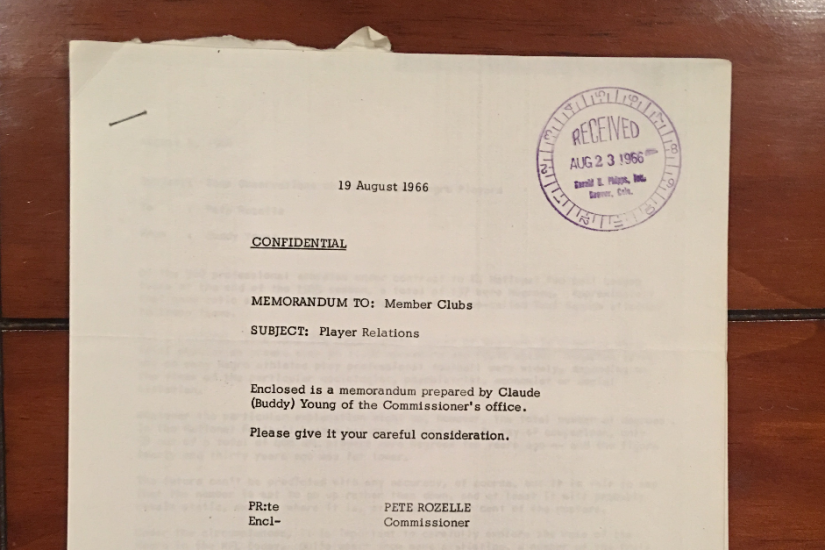History, they say, tends to repeat itself. And yet those repetitions seem to often catch us off guard. For example, how surprised would you be to learn that an NFL executive essentially predicted the Colin Kaepernick controversy, the Rooney Rule and the increasing role of black players more than half a century ago?
All that and more is contained in a confidential NFL memo from 1966 that was recently discovered in an old file by a memorabilia collector. The memo, a major historical find that has never before been made public, originated in the commissioner’s office, with the subject line “Some Observations on the NFL and Negro Players.” It takes note of the growing number of black players in the league, urges the league and its teams to take a more proactive approach toward treating such players “as whole men,” encourages teams to hire more black employees throughout their organizations, recommends the development of support systems for young black players and warns that a team releasing a black player who’d been outspoken on civil rights issues could spark major protests — a scenario that sounds eerily similar to the Kaepernick situation.
The five-page memo was written by Claude “Buddy” Young, a former NFL running back who had been hired in 1964 as the league’s director of player relations, making him the first black executive to be employed by a major sports league. Young sent the memo to then-commissioner Pete Rozelle, who in turn distributed it to the league’s teams with a cover sheet urging them to “Please give it your careful consideration.” Young died in 1983 and Rozelle in 1996, but the memo is a fascinating addition to their legacies. It shows that at least one voice within the NFL was pursuing a surprisingly progressive agenda in the mid-1960s, and that Rozelle gave that agenda his tacit approval by distributing the memo throughout the league.
“It’s a very historically significant document, a visionary document,” Harry Edwards, a sociologist and activist who has served as a consultant to the San Francisco 49ers and the Golden State Warriors, said after viewing the memo. “It should be in Canton, enshrined in a case like the Declaration of Independence.”
